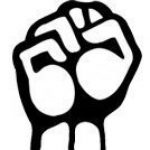 At the end of Easter 2016 week I feel somewhat 1916-ed out. I spent the week watching Insurrection, the wonderful day by day series about the 1916 Rising produced and directed by my late husband Louis for RTE in 1966 and which was re-broadcast for the first time only this year, fifty years after it was made. I also attended exhibitions and other events, and strolled the festive streets of Dublin. Despite the attempts by our right wing (non) government to write out the revolutionary Rising leaders in favour of reformers such as O’Connell, Parnell, Redmond and Grattan, Dublin did itself proud, with streets festooned with flags and shop windows, from banks to souvenir shops, displaying copies of the 1916 Proclamation and pictures of the 1916 leaders.
At the end of Easter 2016 week I feel somewhat 1916-ed out. I spent the week watching Insurrection, the wonderful day by day series about the 1916 Rising produced and directed by my late husband Louis for RTE in 1966 and which was re-broadcast for the first time only this year, fifty years after it was made. I also attended exhibitions and other events, and strolled the festive streets of Dublin. Despite the attempts by our right wing (non) government to write out the revolutionary Rising leaders in favour of reformers such as O’Connell, Parnell, Redmond and Grattan, Dublin did itself proud, with streets festooned with flags and shop windows, from banks to souvenir shops, displaying copies of the 1916 Proclamation and pictures of the 1916 leaders.
Historians encouraged us to remember not only the Rising, but also colonial violence and the fact that Ireland was the first small nation to rise against the British Empire. The events made me reflect on the revolutionary zeal of the republican and socialist leaders of the insurrection and wonder what Ireland would have looked like had they not been executed by the British.
The celebrations made me reflect on post 1916 Ireland, left to De Valera, who kept the island divided and collaborated with the Catholic hierarchy to create a reactionary, priest-ridden, anti-women, pro property owners and anti-foreigners Ireland.
I was also thinking that the 1916 Proclamation’s commitment to ‘the right of the people of Ireland to the ownership of Ireland and to the unfettered control of Irish destinies, to be sovereign and indefeasible’ has given way to surrendering to global capitalism. How its commitment to ‘cherish all the children of the nation equally’ has left out not only poor, homeless and Traveller Irish children, but also the children of asylum seekers left to languish in the appalling direct provision system. How its commitment to gender equality has allowed the 1937 Constitution to return women to the home, and prohibit abortion and choice.
But more than anything else, I was thinking how the Rising constructed Ireland as sovereign and independent, while also linked to its exiled ‘Irish’ sons and daughters in America and beyond, and ‘Irishness’ as white, settled supremacy. Emma Dabiri, an Irish-born daughter of Irish and Nigerian parents, writes in the Guardian about being called the “black one”, the “dark one”: ‘My race seemed to be the first port of call in everybody’s perception of me. Growing up in Ireland was characterised by overt racism, covert racism, isolation, bullying and stigmatisation’. Traveller children tell similar stories about being called ‘knacker’ and worse, and about seeing family members hounded by settled people, abandoning Travellers on the bottom of the heap.
Race – something Irish people see as irrelevant, believing they were ‘monocultural’ until ‘these people’ (immigrants, asylum seekers, labour migrants) came – is alive and well a hundred years after the Irish decolonisation fight. Meanwhile, Irish people who fled the Famine to America or sought work in Australia and Britain ‘became white’, siding with the racists, as documented by writers such as Noel Ignatiev.
Indeed, the 1916 celebrations have been an occasion of remembrance – of successive Irish governments’ appalling refugee policies, from refusing to admit Jewish refugees fleeing Nazism to today’s direct provision hellholes, of their neglect of Traveller rights and of the plight of working class Irish people. The celebrations prompt me to dream about another revolution that would open Irish borders and Irish hearts, close direct provision and end deportations, sort out the housing and homeless crisis and, indeed, honour the leaders of the Rising by at last cherishing all the children of the nation equally.

You must be logged in to post a comment.